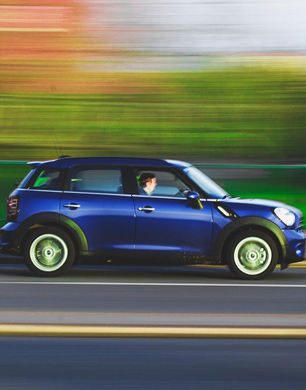When your child starts learning to drive, it can be a nerve-racking experience. From whether they’ll pick it up quick or if they’ll just be safe on their travels, there’s a lot to think about to ensure that your teenager is as prepared for the roads as they can possibly be. In the end, driving lessons give them a new-found sense of freedom, but it’s important responsibility comes with it.
Consequently, here’s how to best help your teen behind the wheel.
Open Discussion
People perform better when there is a strong student-teacher relationship at the core of the learning process. Are you bickering and barking orders, or is your dynamic caring and understanding? If you’re teaching your teenager to drive then you should want to focus on the latter, reducing pressure for them behind the wheel. After all, if your child is a first-time driver, there’ll be enough nerves floating around already!
Invite questions and make polite recommendations or corrections. You don’t want to make your son or daughter more jittery, as they may then even be prone to causing accidents if they break too sharply, for example. Perhaps even strike up a casual conversation between dishing out advice, as this can help to put them at ease and make driving seem a more normal day-to-day experience.
Teach During the Day
Daytime is productive time. It’s when people perform at their peak and are more likely to give every task coming there way a bit of extra vigour in accomplishing it. Tiredness generally isn’t an issue, and everyone is alert to give everything they’ve got. Consequently, you should aim to impart your driving wisdom on your teenager here.
Moreover, it’s better for the driving experience in other ways too. For example, more drivers on the road for your teenager to get used to, more visibility, and far better road conditions. It’s best to practice under the circumstances of which the driver will most often experience and driving at night-time, tired from school or college will be a far rarer occurrence. Help your teen by making them experience the most common parts of the driving experience first.
Set an Example
You may have picked them up a great used car from FOW, but there’s more to the process of effectively equipping your child for roads than the vehicles themselves. Additionally, there’s more to it than words and teaching conditions too. In the end, the best thing you can do for your teenager is to be a role model in the driving experience.
Remember, as the parent, you’re setting the standards that your child should live up to in everything you do. Granted, teenagers of driving age know not to flat out imitate their parent’s poor behaviour, but they’ll be more inclined to drive well if you do too. That respect for your talents will carry over into their skills, and they’ll be less likely to take liberties in their driving if you’ve always driven well their whole life!


